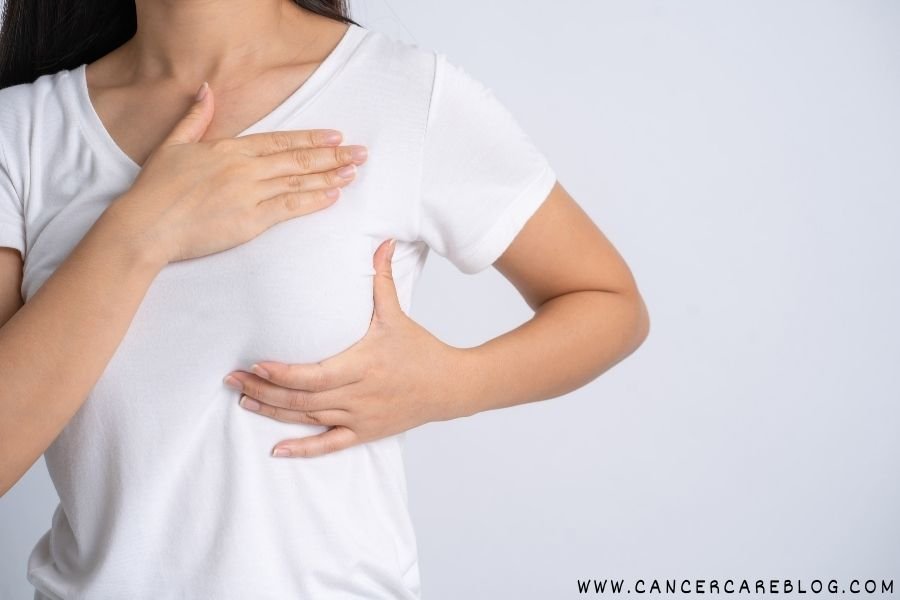When people hear the word breast cancer, their first question is often the hardest: “Can it kill me?”
It’s a scary thought. And I get it. While I’m not a cancer patient, I’ve seen the fear, the confusion, and the silence that comes after a diagnosis. That’s why I’m writing this—for anyone trying to understand the truth behind this question.
Let’s talk about it honestly. But let’s also talk about hope, options, and what you can do next.
Yes, Breast Cancer Can Be Deadly—But It Doesn’t Have to Be
The short answer is yes—breast cancer can cause death if it spreads too far or isn’t treated in time. Like any cancer, if it grows and reaches vital organs like the lungs, liver, or brain, it becomes life-threatening.
But here’s the important part: most breast cancer cases are treatable—especially when caught early.
Today, many people survive and even fully recover. In fact, the 5-year survival rate for early-stage breast cancer in the U.S. is around 99%. That’s a big deal.
Early Detection Changes Everything
Breast cancer doesn’t always show symptoms right away. But when it does, it may show up as:
-
A lump in the breast or underarm
-
Swelling or thickening in part of the breast
-
Red or flaky skin
-
Nipple discharge
-
Change in shape or size
If you notice anything unusual, talk to your doctor. Don’t wait.
Early diagnosis can literally save your life.
What Are Your Treatment Options?
There’s no one-size-fits-all plan. Your treatment depends on things like your cancer type, size, stage, and overall health.
Here are the main types of breast cancer treatment:
-
Surgery – Most people need surgery to remove the tumor.
-
Chemotherapy – Uses drugs to kill cancer cells.
-
Radiation – Targets the cancer area to stop it from spreading.
-
Hormone therapy – For cancers that grow because of hormones.
-
Targeted therapy – Attacks specific cancer cells.
Is There Breast Cancer Treatment Without Surgery?
Yes. Some people do receive breast cancer treatment without surgery—especially if surgery isn’t safe due to age or health conditions.
Non-surgical treatments may include:
-
Hormone therapy (to shrink tumors)
-
Targeted therapy
-
Radiation
-
Clinical trials
But keep this in mind: in most cases, surgery is still the most effective way to remove the cancer. It’s often combined with other treatments for best results.
Always talk to your doctor about your options.
Is There a Breast Cancer Cure?
People often ask: “Is there a breast cancer cure?”
That depends on what we mean by “cure.”
For many, especially those diagnosed early, treatment leads to complete remission. That means there’s no sign of cancer in the body. Some people stay cancer-free for the rest of their lives.
Doctors often don’t say “cure” right away because cancer can return. But in reality, millions of people live long, healthy lives after breast cancer.
What If the Cancer Comes Back?
This is called recurrence. It means cancer has returned after treatment.
It might come back:
-
In the same place (local)
-
In nearby lymph nodes (regional)
-
In other parts of the body (distant or metastatic)
Treatment is still possible in most cases. The goal may shift to controlling the disease instead of curing it—but many live well for years with the right care.
Emotional Side of Breast Cancer
Being diagnosed with cancer is more than just a physical fight. It affects your mental and emotional health too.
You might feel fear, anger, sadness—or all of it at once. That’s normal.
Please don’t go through it alone. Talk to a therapist, join a support group, or reach out to others who understand.
Your mental strength matters in healing.
Can You Prevent Breast Cancer?
You can’t always prevent it, but you can reduce your risk. Here’s how:
-
Get regular mammograms
-
Do monthly self-exams
-
Eat healthy and stay active
-
Limit alcohol and avoid smoking
-
Know your family history
-
Talk to your doctor about genetic testing if needed
Awareness is power.
Final Thoughts
So, can breast cancer kill you? Yes, it can.
But here’s the truth that matters even more: most people survive breast cancer—especially when it’s found early and treated properly.
Don’t let fear keep you from getting help. If something doesn’t feel right in your body, speak up. There’s support. There are options. And there is hope.
Whether you’re going through this yourself or standing by someone who is—stay informed, stay strong, and never give up asking questions.
Sources:
American Cancer Society – Breast Cancer Survival Rates



